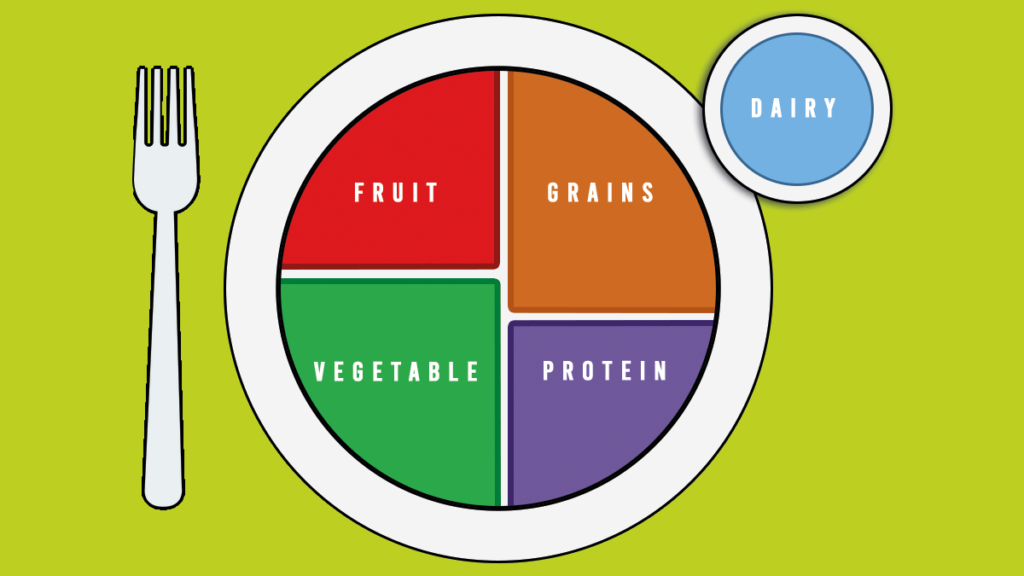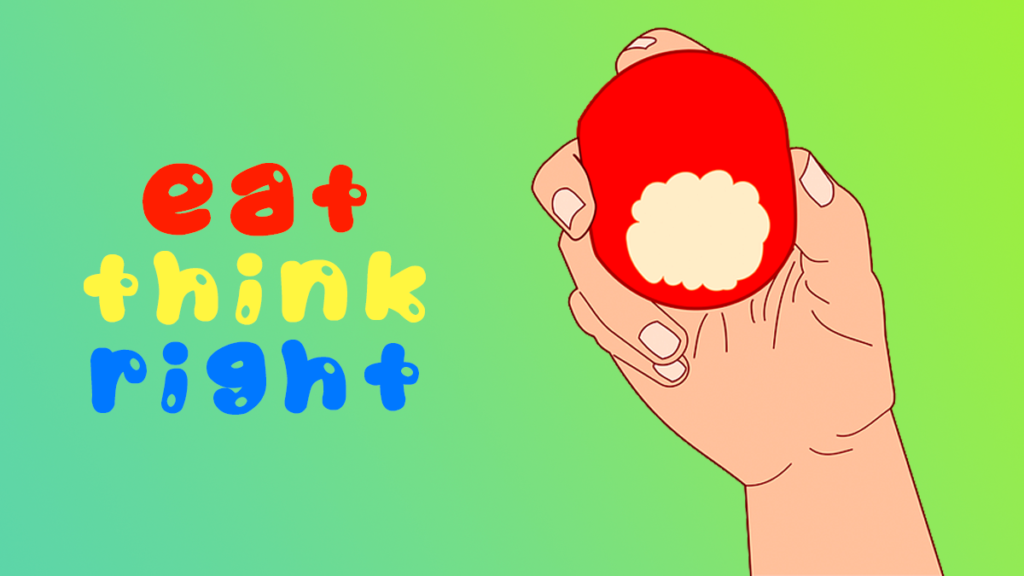The impact of the food we eat doesn’t just affect our physical health but also our mental well-being. By adding a more balanced variety of foods into our meals they can help to improve our mood, brain function and provide us with more energy.
Have breakfast
if someone is dieting, they may skip breakfast or replace it with a beverage to limit their calorie intake. But not having something to eat can affect your mood and productivity levels. Therefore, instead of skipping the meal completely it should be replaced with a healthier alternative. This can be done by eating a cereal with high fibre and low sugar such as Weetabix and replacing whole milk with semi-skimmed milk. If you are in need of any healthy toppings or combinations there are countless ideas that you can find online or on social media.
Eating regularly and carbohydrates
Our brain requires a great amount of energy in order for it to be able to focus and concentrate. This energy that is needed comes from the body breaking down the carbohydrate into glucose. If we do not supply enough energy to the brain, it can result in us feeling tired and not being able to think clearly. By adding complex carbohydrates such as wholegrains, oats, rice and nuts.
Hydration
Keeping yourself hydrated is important for the brain to function optimally. If you do not drink enough water you may begin to see that your concentration levels and ability to think clearly start to wane. This is because a lot of the brain’s functions require energy and when they do not get enough it can cause these functions to become inefficient and, in some cases, even shut down. Dehydration can also impede on the production of serotonin as well as other stress hormones which, when combined, can worsen your mental health.
Signs to look out for if you are dehydrated:
- Thirst
- Dry mouth
- Headache
- Weak and fatigued
- Rapid heartbeat
- Constipation
- Tired
- Difficulty concentrating

Alcohol consumption
Having a drink of alcohol after a long day at work may help you feel more relaxed in the moment but this can mask the long-term effects on your mental health. This is because the brain relies on neurotransmitters to help regulate our feelings, thoughts and actions. Alcohol works by changing these chemical processes in the brain. For some people, a drink will help them to feel less socially anxious because the alcohol has suppressed the section of their brain linked with inhibition. However, this is simply just a short-term fix as the feeling will eventually wear off. This can cause a dependency on alcohol because you will build up a tolerance to it so over time you will need to consume more to get that same feeling back. In addition to this, the alcohol is doing nothing to tackle the root cause of the anxiety you are feeling.
Fats
Our nervous system and brain are dependent on nutrition so that they can build new cells, proteins and tissues. For these to function effectively we need to consume balanced meals consisting of all the food groups. In the case of fatty acids, they serve several purposes including providing energy to our heart, muscles and other organs. However, it is vital to consume the right type of fat because a diet that is heavily dependent on saturated fat can lead to a number of health problems such as heart disease. Healthy fats, on the other hand, can be found in oily fish, milk, eggs, cheese, sunflower and olive oil, nuts like walnuts and almonds.
Fruit and Veg
It is widely known that you should eat at least 5 portions of fruit and vegetables every day. This can be easier to do than you may think as you can swap out an afternoon snack with a fresh piece of fruit or top off your cereal with some sliced fruit. This food group is important to include as part of our daily meals as they provide us with vital vitamins and minerals that we need to keep us mentally and physically healthy.
Caffeine
Caffeine is known as a stimulant as it provides you with a short boost of energy which can help power you through a long day at work. However, you should be wary of the timing that you have something with caffeine in it as if you have it shortly before bed it can disrupt your sleep. This can get your day off to a horrible start as you will wake up feeling tired, agitated and lethargic. It is also worth bearing in mind that stopping caffeine consumption immediately can cause you to have withdrawal symptoms. Some of these symptoms include headaches, irritability and a difficulty concentrating. Therefore, the process should be slow and involve switching to a decaffeinated version of your favourite coffee or tea.

Iron
An iron deficiency results in an increased chance of the diagnosis of anaemia. This can influence your mood and mental health as it can leave you in a state where you constantly feel weak and lethargic. You can make sure you get enough iron in your daily meals by making some additions to your meals. This involves eating more dried fruits such as apricots and raisins, red meat, watercress and fortified cereals and breads.
Protein
In order to regulate feelings and thoughts our brain needs amino acids. A well-balanced, high-quality protein diet is essential as it contains all the amino acids that we need. Foods that are rich in protein include lean meats, eggs, fish and milk. Also, a lot of the neurotransmitters in our brain are made of amino acids such as dopamine and serotonin. If there are not enough amino acids it will limit the number of these neurotransmitters that can be produced. A low level of dopamine and serotonin in an individual has been associated with an increased chance of aggression, depression and mood problems.
Healthy gut
The vagus nerve connects our brain and gut together. It also produces neurochemicals that are responsible for a number of different things, including mood. By having a healthy digestive system, we can absorb all the vital minerals, nutrients and vitamins our brain needs. However, when our digestion has been affected the production of neurotransmitters, like serotonin are reduced. These low levels of serotonin have been linked to mood, anxiety and depression. You can make some changes to your meals to improve your gut health. This would include the addition of fruits, vegetables, wholegrains, plenty of fibre and other probiotics.



